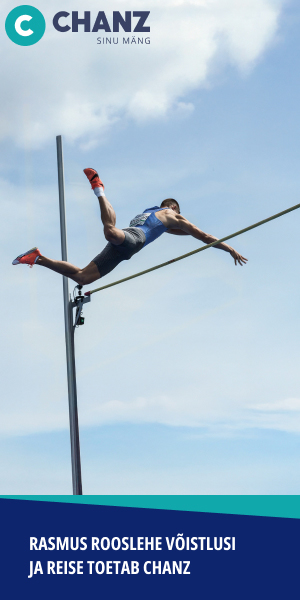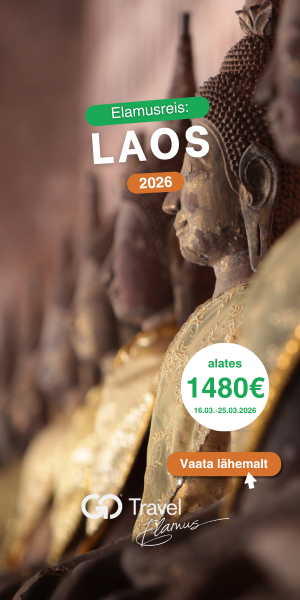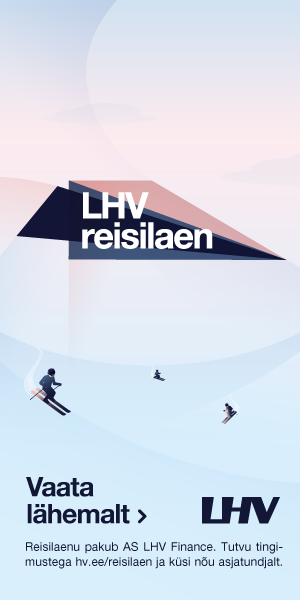WHO teadaanne - leetrite vaktsineerimisnõuetest reisijatele Okeaania riikides
Reisijatel, kes siirduvad ülal nimetatud riikidesse, tuleb kindlasti kaasa võtta leetrite-vastast vaktsineerimist tõendav dokument (“proof of vaccination” ), milleks on:
- rahvusvaheline vaktsineerimise või profülaktika tõend (kollast värvi International Certificate of Vaccination or Prophylaxis), kuhu on tehtud sissekanne vaktsineerimise kohta MMR vaktsiini ühe annusega vähemalt 15 päeva enne reisi või
- vereproovi uurimise tulemus, mis viitab läbipõetud infektsioonile või vaktsineerimisele ehk IgG antikehade kontsentratsioon on vajalikul tasemel (traveller’s blood test confirms the presence of measles antibodies or that the test is reactive for measles, which means that the traveller is protected, in lieu of a vaccination record).
Vaktsineerimise kohustus ei laiene imikutele vanuses kuni 6 kuud, rasedatele naistele ning reisijatele, kellel on kaasas arsti tõend vaktsineerimise vastunäidustuse kohta (nt immuunpuudulikkuse või allergia tõttu).
Allikas: Terviseamet
Järgneb originaalartikkel
ORIGINAALARTIKKEL (inglise keeles)
EIS Announcement on additional health measures related to measles in American Samoa, Republic of Marshall, Solomon Islands, and Tokelau
This is an update to the previously published EIS announcement [1] on 15 December 2019, to inform about additional health measures in relation to measles, and their rationale, implemented by 1 more country within the Pacific Island Countries – Solomon Island.
Pacific Island Countries and Areas (PICs) are responding to outbreaks of measles with cases being reported for the first time since 2014.
As of 18 December, American Samoa is reporting ten confirmed cases of measles including four autochthonous confirmed measles. American Samoa Department of Health has heightened its surveillance, tested all patients presenting that meet the measles case definition. In American Samoa, an initial emergency declaration was issued on 13 November 2019 for 30 days and has just been extended for another 30 days. The additional extension will be based on the determination of risks by American Samoa’s public health experts.
In the Republic of the Marshall Islands (RMI), no case of measles has so far been reported. RMI is highly susceptible to measles introduction due to low routine measles immunization coverage. If any measles case is imported from other country , the RMI is at risk of outbreak due to the presence of immunity gaps among young children born since the most recent supplemental immunization campaign in 2015. In addition, widespread malnutrition and Vitamin A deficiency increase the risk of complications and mortality due to measles. If the measles virus is imported to RMI, the transmission of measles will likely spread immediately and rapidly.
Currently, Tokelau has no recorded measles case and is prioritizing actions to reduce the risk of importation of measles from Samoa and other neighboring countries and potential subsequent spread.
On 13 December 2019, the Ministry of Health and Medical Services (MHMS) of the Solomon Islands government issued updated “Measles travel advisory for travellers arriving in Solomon Island “, due to the current measles outbreaks in many countries in the region. The routine coverage of measles containing vaccine (MCV) stands at 93% and a month long supplementary immunization campaign undertaken in last one month (targeting 6 months to 6 years) resulted in 98.8% coverage among target populations. However, hot spots and populations (susceptible populations) where the coverage could be sub-national cannot be ruled out. Solomon Islands have heightened their surveillance, tested all patients presenting that meet the measles case definition.
Due to the perceived risk of importation and potential public health impact, following PICs have introduced additional health measures.
Additional Health Measures
Solomon Islands (Population: 652,857 – 2018)
The National IHR Focal Point of Solomon Islands notified WHO on 18 December 2019 that the Ministry of Health and Medical Services of the Solomon Islands Government has enacted additional health measures due to the current measles outbreaks in many countries in the region.
- All persons arriving in Solomon Islands will be required to complete a Traveller’s Public Health Declaration Card. This advisory is effective from December 14, 2019.
- All Solomon Islanders and residents of Solomon Islands planning to travel to measles affected countries are required to get vaccinated with a single dose of measles containing vaccine 15 days prior to their departure from the Solomon Islands. This advisory becomes effective from December 28, 2019.
- Solomon Islanders and residents of Solomon Islands arriving from measles affected countries (including transit through these countries) should carry a certified proof of measles containing vaccination received 2 weeks prior to the arrival date in Solomon Islands. If it is not available, they will be allowed to board at the departing country but will be quarantined (home-based) for 21 days in Solomon Islands. This advisory becomes effective from December 28, 2019.
- Non-Solomon Islanders arriving from measles affected countries (including transit through these countries) should carry a certified proof of measles containing vaccination received 2 weeks prior to the arrival date and if it is not produced, they will not be allowed to board at the departing country. Non-Solomon Islanders arriving from measles affected countries (including transit through these countries), who fail to produce the certificate of vaccination in Solomon Islands will be deported. This advisory becomes effective from December 28, 2019.
These requirements (except the completion of health declaration) are not applicable for infants less than 6 months of age, pregnant women and persons carrying documentary evidence of contraindications for vaccine administration such as immune-deficiency and allergies (certificate from doctor is required).
For the purposes of this advisory, measles-affected countries include American Samoa, Samoa, Fiji, Tonga, Australia, New Zealand and the Philippines.
For the purposes of entry to the Solomon Islands , “proof of vaccination” can take the form of:
- A vaccine card (yellow card) or any other documentation that lists the measles vaccine as having been administered at any date prior to the 15 days stipulated in the travel advisory or in childhood.
- A medical certificate from a recognised medical practitioner/hospital that states that a traveller’s blood test confirms the presence of measles antibodies or that the test is reactive for measles, which means that the traveller is protected, in lieu of a vaccination record.
Public health rationale
The Solomon Islands and other PICs have been free from measles since 2014, the recent outbreaks of measles in selected PICs have been linked to importation of measles infection. The Solomon Island Government (SIG) is committed to keeping its country free from importation of the infection and strengthen preparedness and response to measles. Implementing measures and introducing travel requirements at points of entry such as travel restrictions, health declaration, screening, quarantine, and isolation result in increasing awareness and result in preventing importation and detection of cases and assessment of at-risk populations (non-immune). The such measures have been considered an option for health security management, when applied in conjunction with post-border surveillance and containment measures, may help to delay entry and slow community spread of infections (https://iris.wpro.who.int/bitstream/handle/10665.1/10636/RS_2009_GE_33_PHL_eng.pdf [2]).
The Ministry of Health and Medical Services (MHMS), in conjunction with WHO, have undertaken periodic risk assessments (RA) to address two scenarios: RA for threat of importation and RA for potential for outbreaks and geographical spread and its impact on the health system and health of people in Solomon Islands. Considering the increasing risk of importation of measles virus, and guided by the risk assessment, the SIG has imposed the above additional health measures.
The MHMS having taken note of the fact that these measures have limited value if implemented in isolation, and has introduced additional public health measures to address the threat of measles. These public health measures are based on health system capacity to respond to measles and include:
- Immunization: The routine coverage of measles-containing vaccine (MCV) in the target age group (12-18 months) stands at 93% and a month-long supplementary immunization campaign undertaken in the last one month (targeting 6 months to 6 years) resulted in 98.8% coverage among target populations. However, hot spots and susceptible populations at the sub-national level cannot be ruled out.
- Enhanced surveillance: Routine surveillance of acute fever and rash (AFR) and eventbased surveillance have been strengthened and every suspected case and those with history of contact and epi-link with measles is being actively followed up. Refresher trainings for surveillance officers are being conducted and reporting has been streamlined. Laboratory services are limited and blood samples from cases of AFR are sent to Australia for testing. This hampers efforts to detect outbreaks early and it becomes prudent to make efforts to delay the importation and prepare to respond. Other risk factors for outbreaks such as poor sanitation and crowding are in existence in Solomon Islands.
- Health Systems and medical care: Health services and medical care in Solomon has limited capacity to handle complicated measles case and high mortality among measles cases is a probability. There is limited knowledge of health care workers (HCW) to manage measles cases. Clinical management guidelines have been developed and trainings on clinical management are being provided to HCW. Infection prevention and control (IPC) activities at the National Hospital have been strengthened and a dedicated isolation facility has been established at the National Referral Hospital. However, there is limited capacity at the provincial hospitals to provide IPC and isolation facilities.
- Risk Communication: Information, education and communication (IEC) activities for the general public, health care workers and staff at points of entry have been conducted and regular media briefings are being provided.
- Points of Entry: Apart from the travel requirements listed above, IEC activities at points of entry have been strengthened. Travellers are being provided an information sheet on seeking treatment in the event of sickness. Standard operating procedures for the management and transport of sick patients from points of entry have been developed.
One of the important considerations for enforcing these travel requirements includes ongoing and planned mass gatherings during the upcoming Christmas season. An importation of infection and exposure during mass gatherings will not only be catastrophic for Solomon Islands but it will also contribute to international spread in other PICs. These measures proposed by the SIG at points of entry including exit advisory (in force now in Solomon Islands) are seen to demonstrate the country’s commitment to contribute to global health security.
The SIG strongly maintains that these efforts do not cause significant disruption to international travel and trade and the SIG has taken a balanced approach (based on risk assessment) while implementing these measures. However, the SIG has taken steps to ensure that there is minimum disruption of international travel and trade, which include provision of measles-containing vaccines for travellers going to affected countries which include, not only the citizens of Solomon Islands, but also citizens of other countries residing in Solomon Islands including UN staff who are planning to travel.
These requirements will come into force 14 days after issue of the notification, allowing for adequate time for travellers to comply with the requirements so that travel is not disrupted.
Tokelau (Population : 1,499 – 2016)
The National IHR Focal Point (NFP) of Tokelau, supported by the NFP of New Zealand, informed WHO on 17 December about the implementation of additional health measures effective from 26 November 2019 until further notice, as follows:
Entry screening
Proof of vaccination required – Proof of vaccination means any person travelling to Tokelau must have either (a) documented evidence of vaccination at childhood for measles or (b) documented confirmation of having had measles or (c) documented evidence of having received a measles booster vaccination irrespective of age.
Two week ‘stand down’ – Travellers to Tokelau need to show proof of vaccination undertaken at least two weeks prior to travel i.e., departure from Apia, Samoa to Tokelau (travelling passengers coming from outside of Samoa need to be vaccinated two weeks prior to travelling to Apia to avoid exposure to the virus in Apia). If proof of vaccination is less than two weeks, then the traveller(s) will remain in Apia until the completion of the two-week period before they will be allowed to travel to Tokelau. This requirement started on 26 November 2019 and continues until further notice – noting that under Article 43.6 of the IHR (2005)Tokelau will need to review this requirement no later than 26 February 2020.
Passengers from Apia bound for the atolls only to disembark on the designated destination atoll. Screening will be done for all passengers upon arrival in each atoll by the local health teams and follow through for the first two weeks to ensure arriving passengers do not import the virus to Tokelau.
Public Health Rationale
Tokelau advises that it has 100% Measles-Mumps-Rubella vaccination coverage for infants, that most of the population have immunity to measles and that to date, no cases of measles have been reported. However, the priority is on strengthening border control to reduce the risk of importing of measles from Samoa and other neighbouring countries. These measures are being undertaken to protect Tokelau, as any importation could lead to rapid spread and potentially excess morbidity and mortality. Hospitals in Tokelau are prepared to manage any suspected case(s). Infection control and universal precautions have been strengthened in all hospitals.
Further information is available on the website of the Government of Tokelau: https://www.tokelau.org.nz/Bulletin/November+2019/Tokelau+measures+and+border+control+against+Measles+epidemic.html [3].
American Samoa (Population: 55,641 – 2017)
On 23 November 2019, the United States (US) National IHR Focal Point on behalf of the US territory of American Samoa notified WHO of additional health measures being implemented in American Samoa in response to an increased number of imported measles cases in the US territory of American Samoa.
Entry requirements
American Samoa is requiring proof of measles vaccination from all travelers entering the territory via Samoa and the Kingdom of Tonga.
- All non-resident and non-US Citizens born in 1957 or later (62 years old or younger) to show proof of measles vaccination, administered at least 14 days prior to travel. If not, they will be returned to their previous port of departure. All travelers born before 1957 (63 years or older) are assumed to be immune. Travelers whose original port of departure is Apia, Samoa, will also require having an “Immunization Confirmation” form from the Ministry of Health. All non-residents and non-US Citizens will be held in a quarantine area until they can be re-boarded on an outbound conveyance.
- Returning American Samoa residents and US Citizens who are unable to provide proof of vaccination with a measles-containing vaccine (MCV) will be allowed entrance and placed on voluntary quarantine at their homes for 14 days.
Exit requirements
All American Samoa residents, permanent residents, and US Citizens with no evidence of immunization against measles, traveling to areas of known measles outbreak are recommended to get 1 dose of MMR 14 days before traveling.
Public health rationale
The measures are implemented in response to increased number of imported measles cases in American Samoa, in order to protect American Samoa from importation of potential measles cases, which may spark a rapid dissemination of cases given dense populations and suboptimal immunization coverage and to prevent international spread via unvaccinated travelers that may get infected while visiting the neighboring Pacific Island Countries and Areas currently experiencing outbreaks.
Further information is available on the website of the Government of American Samoa: https://www.americansamoa.gov/ [4]
The declaration of continued public health emergency: https://6fe16cc8-c42f-411f-9950-4abb1763c703.filesusr.com/ugd/4bfff9_05e282298c104ddd9430fd38547b11e8.pdf [5]
Amended Proclamation:
https://6fe16cc8-c42f-411f-9950-4abb1763c703.filesusr.com/ugd/4bfff9_88a80992c0ef4201947a0ec0f426a7fa.pdf [6]
Republic of Marshall Islands (Population: 53,127 -2017)
On 3 December 2019, the Secretary of Health and Human Services of the Republic of the Marshall Islands (RMI) notified WHO of additional health measures being implemented in RMI in response to the current circulation of measles in neighboring countries of Samoa, Tonga, Fiji, Australia, New Zealand, and the Philippines. These requirements are in effect in RMI until further notice from MoHHS and will be reassessed based on the evolving situation.
Entry requirements for those travelling from Measles Affected Areas – effective as of 10 December 2019
The Secretary of Health and Human Services of the RMI has declared additional health measures being implemented, as follows.
- All travelers, except RMI citizens and foreign residents, between 6 months of age to adults born on or after 1957 must show evidence of up-to-date (current in 2019) measles vaccination at least 2 weeks before entry to RMI ports.
- Persons who fail to do so will be denied entry and must be re-boarded on the same craft he/she arrived on.
- All RMI citizens and foreign residents must show evidence of up-to-date measles vaccination. Those who are unable to provide proof of vaccination with a measles-containing vaccine (MCV)will be allowed entry, but required to undergo strict home quarantine for 14 days and will be vaccinated by the Ministry of Health and Human Services (MoHHS). MoHHS to provide medical sick leave forms.
- Persons traveling from measles affected areas will need to “watch and monitor” their own health for 3 weeks upon arrival/return. Anyone who develops these symptoms must seek medical care immediately and inform their nearest health care provider. They will also be required to inform Public Health officials of their recent travel to measles affected areas and whether they received a measles vaccination or not.
Exit requirements for those travelling to measles-affected areas
- All travelers going to any measles affected areas must be vaccinated against measles two weeks prior to travel. Infants 6 months of age and older will need at least one dose of MCV. Any child vaccinated before 12 months of age will still require two doses of MCV at 12 months and 13 months of age.
- All persons with no evidence of vaccination (children 12 months of age up to adults born in 1957) must be vaccinated with two doses of measles-containing vaccine two (2) weeks prior to travel to affected areas. If not, their departure will be refused.
- Any persons who have been affected by measles in the past and have acquired lifelong immunity against measles must show certified proof from their health provider. Anyone who is unable to provide evidence of measles immunity will be vaccinated.
Public health rationale
The National IHR Focal Point of the Republic of Marshal Islands informed WHO on 3 December 2019 that the Ministry of Health and Human Services issued an international travel advisory due to the current measles outbreaks occurring in Samoa, Tonga, Fiji, Australia, New Zealand and the Philippines. RMI is highly susceptible to measles introduction due to low immunity coverage of less than 90%, Vitamin A deficiency and stunting in 35% of children under the age of 5 years. Measles is highly contagious and can spread easily from person to person through the air, via breathing, coughing and sneezing and impacts both children and adults. Measles is so contagious that if 1 person has it, up to 90% of the people close to that person who are not immune will also become infected. If the measles virus is imported to RMI, transmission of measles will spread immediately and rapidly. Given the recent large-scale measles outbreaks in neighbouring Pacific nations and the significant population movement between these countries and the Pacific, there is a risk of the virus being imported to the RMI.
Further details are available from the US embassy in the Republic of the Marshall Islands website: https://mh.usembassy.gov/travel-advisory-health-alert-protection-against-measles-importation-into-the-rmi/ [7]
WHO Risk Assessment
The risk from a measles outbreak in some PICs is assessed to be moderate to high, due to variable immunization coverage, limited capacity to detect and respond to outbreaks and challenging logistics.
There is a coordinated effort among the Member States and Areas supported by WHO and partners. A regional response plan is in place to provide strategic direction for responding to current measles outbreaks in affected PICs, increase preparedness activities in non-affected PICs and rapidly mobilize funds and human resources to support containment of outbreaks to reduce the public health impact and spread in PICs. However, there are a number of factors unique to PICs that influence the risk to populations as listed below.
Pacific Island Countries (PICs) have a unique health security context that may influence the consideration of public health measures to reduce public health risk from the introduction of communicable disease into their populations, including:
- Absence of noticeable measles virus circulation for many years in most PICs, therefore, limited immunity and limited experience with case management.
- Accumulation of susceptible population in a number of PICs (vaccinated but non-immunized cohorts, suboptimal vaccination coverage in several PICs, population immunity below herd immunity thresholds in other PICs).
- The island setting and relative geographic isolation, including limited resource availability and huge cost implication for transporting severe cases to adequate health facilities.
- Large population movement between PICs and to other countries in the region, and sociocultural customs, societal structures, living conditions and high level of social interaction amongst people that may facilitate rapid expansion of measles outbreaks.
The most recent outbreaks in the Western Pacific Region have been fueled by low immunization coverage due to gaps in routine immunization programs, low immunization coverage among underserved populations and vaccine hesitancy.
Given the volume of movement from measles affected areas to PICs and the impending holiday period, which will see the return of nationals to Island Nations and an influx of tourists there is a risk for importation of measles.
WHO advice
WHO has published advice for international travel in relation to measles in June 2019 (see link below). The above measures and their rationale are to be seen within the specific epidemiological geographical and operational context of the Pacifc Islands countries during the current increase in measles outbreaks in the region.
Compliance with requirements of the IHR (2005) in relation to additional health measures
Under Article 43 of the IHR (2005), countries are required to inform WHO on the scope and public health rationale on additional health measures that significantly interfere with international traffic (i.e. refusal of entry of delay of entry for more than 24 hours) within 48 hours of their implementation. Such measures should be based on available scientific evidence of risks and should be considered for a limited time period.
Once the public health rationale has been provided, following IHR (2005), WHO must share the information with other States Parties. State Parties implementing such measures are also requested by the IHR in Article 43 to review these measures after 3 months, taking into account WHO advice and relevant scientific considerations. The assessment feasibility of implementing such measures, including logistics and financial implications remains the responsibility of the implementing State Party.
WHO is in continuing discussion with countries implementing additional health measures in relation to measles outbreaks within the Pacific Isalnds region, to review the public health rationale, scientific justification and the duration of such measures, given the specific contexts in which the measures are implemented.






